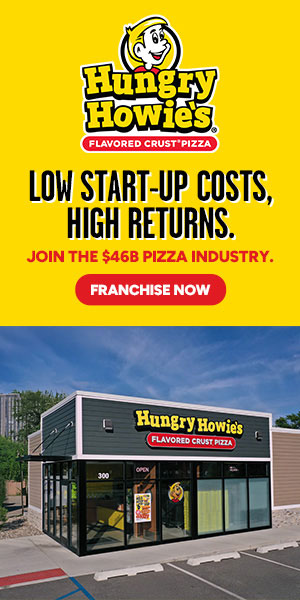Exploring Europe: Key European Markets and Their Unique Peculiarities

For restaurant groups and U.S.-based brands considering European franchise expansion, the continent offers a blend of opportunities and challenges. Each country presents unique cultural, economic, and regulatory dynamics that shape franchising strategies. Here’s a closer look at five key European markets and their distinct franchising landscapes.
United Kingdom: Franchising amidst economic shifts
The UK is a top destination for U.S. brands entering Europe, thanks to its cultural similarities, English-speaking market, and minimal franchise disclosure requirements. It also boasts Europe’s most mature franchising landscape, with a high number of sizeable multi-unit franchisees.
However, the 2024 Autumn Budget introduces significant financial challenges. National Insurance Contributions (NICs) will rise from 13.8 to 15 percent, and the National Minimum Wage will increase to £12.21 per hour for over-21s in April 2025, with rates for 18–20-year-olds rising to £10 per hour. Additionally, business rates relief has been reduced from 75 percent to 40 percent, capped at £110,000, impacting large establishments with high-ratable properties.
These measures are expected to increase operational costs, tightening margins, and challenging profitability. Franchisors and franchisees must reassess financial models, potentially adjusting pricing or streamlining operations to remain viable in this increasingly competitive market.
France: Franchising in a land of culinary tradition
France’s celebrated food culture requires franchisors to adapt their strategies to align with local tastes and high consumer expectations. Area development franchises are common, often supported by master franchisees or national franchisors. International players like KFC, Burger King, and Popeyes operate through master franchise agreements, while Five Guys takes a direct approach through a joint venture based in the UK. A shared element is the reliance on local teams to ensure successful integration into the market.
Navigating France’s regulatory landscape poses unique challenges, with strict labor laws and mandatory franchise disclosure requirements. Brands must work closely with franchisees to address these legalities and tailor their offerings to regional preferences, from the cosmopolitan tastes of Paris to traditional flavors in smaller towns.
Germany: Structured franchising for scalability
Germany’s robust economy and population make it a key market for franchising in Europe. The dominant model here is area development agreements, which allow franchisors to collaborate with experienced operators capable of scaling efficiently. Burger King and KFC have historically relied on master franchise agreements, though Yum! Brands recently took direct control of KFC in Germany to better manage franchisee operations.
Sustainability is a growing priority for German consumers, and franchisors must incorporate eco-friendly practices into their business models. Franchisees benefit from comprehensive training programs and detailed operational manuals that ensure alignment with these expectations. Understanding regional differences is crucial, as Germany’s decentralized market demands flexibility to cater to diverse consumer preferences.
Italy: Franchising with authenticity
Italy’s rich food traditions make it a unique market where authenticity and localization are essential for success. Starbucks’ entry into Italy is a notable example of a brand adapting its strategy to local sensibilities. After a difficult first entry attempt, Starbucks’ second attempt saw the launch of a premium roastery concept in Milan, demonstrating its respect for Italian coffee culture before expanding into smaller cafés through area development and partnering with local suppliers.
Franchising in Italy also requires navigating a complex bureaucracy. Successful franchisors often rely on experienced franchisees with deep local knowledge to manage regulatory requirements. While brands like KFC have achieved success in Italy, their growth has been slower compared to other European markets, underscoring the importance of patience and market-specific strategies. Other brands, like Domino’s experienced challenges over their seven-year development journey and eventually left the market, closing their 29 units in 2022.
Spain: Franchising for vibrancy and growth
Spain’s vibrant food culture and strong tourism industry make it an appealing market for franchising. Brands such as Burger King, Carl’s Jr., and Domino’s have used master franchise agreements to expand, while others have started with regional licenses in cities like Madrid and Barcelona. Spain’s consumer base is generally open to international brands, creating a franchise-friendly environment.
Flexibility is key in Spain, as regional preferences vary widely. Franchisors must allow their partners to tailor menus and marketing strategies to local tastes. Robust franchise associations in Spain support both franchisors and franchisees, helping them navigate legal and operational challenges. The growing reliance on delivery services also underscores the importance of tech-enabled franchise operations in the market.
Unlocking Europe’s franchising potential
Expanding into Europe offers abundant opportunities for U.S. restaurant brands, but success depends on understanding the nuances of each market and adopting tailored franchising strategies. Partnering with experienced local teams, embracing cultural and regional differences, and adapting to regulatory and economic changes are essential for long-term growth. Europe’s diversity is its greatest strength, and with the right approach, it can become a thriving destination for international franchise success.
Rebecca Viani is Partner with WhiteSpace Partners, a London-based firm, focused on the development and execution of market entry, franchise development, and acquisition strategies for restaurant brands expanding into Europe and the Middle East.
Share this Feature
Recommended Reading:
| ADVERTISE | SPONSORED CONTENT |
FRANCHISE TOPICS
- Multi-Unit Franchising
- Get Started in Franchising
- Franchise Growth
- Franchise Operations
- Open New Units
- Franchise Leadership
- Franchise Marketing
- Technology
- Franchise Law
- Franchise Awards
- Franchise Rankings
- Franchise Trends
- Franchise Development
- Featured Franchise Stories
| ADVERTISE | SPONSORED CONTENT |








 The franchise listed above are not related to or endorsed by Franchise Update or Franchise Update Media Group. We are not engaged in, supporting, or endorsing any specific franchise, business opportunity, company or individual. No statement in this site is to be construed as a recommendation. We encourage prospective franchise buyers to perform extensive due diligence when considering a franchise opportunity.
The franchise listed above are not related to or endorsed by Franchise Update or Franchise Update Media Group. We are not engaged in, supporting, or endorsing any specific franchise, business opportunity, company or individual. No statement in this site is to be construed as a recommendation. We encourage prospective franchise buyers to perform extensive due diligence when considering a franchise opportunity.